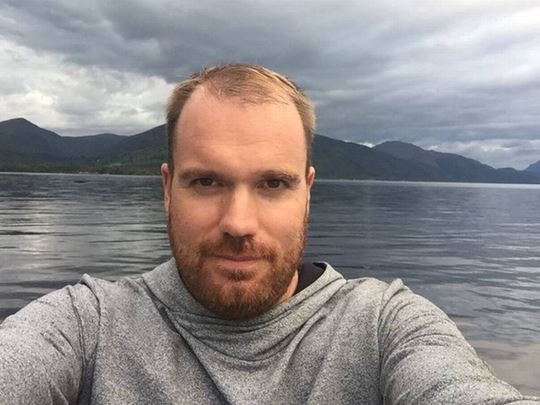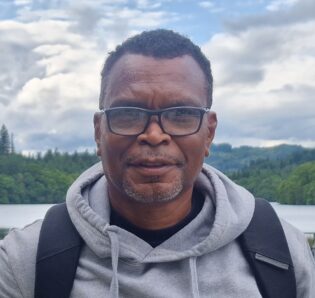Single foster parent, Jeremy Bottrill, 39, based in Markyate, West Hertfordshire, decided to embark on a new journey in fostering five years ago.
During this time, Jeremy has looked after 10 young people of varying ages, providing a variety of short-term and respite care.
Before beginning his journey, Jeremy’s background was in youth work and he jumped at the chance of trying to help younger generations who may have fallen on hard times, as he explains.
‘I found myself in a situation where I had the capacity to look after someone, had the space in my home and the desire to connect with a young person meaningfully through that time.
‘I was encouraged by a couple of good friends to consider it. I hadn’t really given it that much serious consideration before and I got to the point where I thought to myself, why not actually – this could be really good for me and the children that I’ll be supporting.’

Jeremy continues: ‘I tentatively went through the application process with ISP thinking if I’m not happy or if I’m not comfortable I can put a stop to this at any moment, but as I received more information and participated in the basic level of training that all carers need to go through to sign up, I relished the challenge.’
However, as Jeremy explains, looking after a foster child can often be a complex task because every individual has their own unique set of needs and circumstances.
Jeremy is currently looking after a 16-year-old and says; “It’s important that foster parents allow children time to breathe, work at their own pace and provide the tools to feel comfortable in asking questions, should they need to.”
Fostering has developed Jeremy as a person and he confidentially says it’s important to dispel some of the strongly held misconceptions about children in care; ‘I think I did often have this idea when I was younger that maybe if another young person was in care that there was almost something wrong with them, or maybe I couldn’t quite trust them, he explained.
‘I knew very little at that stage, I never really experienced anything like that, and I didn’t have many friends that were in the care system, and I think that’s the difficulty really.
‘When you get to know people, when you hear more of their stories and you take the time to listen, I think it helps build bridges as otherwise, you can make assumptions in ignorance at times.”
He continues; ‘But I think every young person who’s in care really just wants to be loved and nurtured and treated as a normal child.
‘There’s no reason to single children out, or to make an example of them or make them feel any different. Part of the art of the job of fostering is to try and give that young person a normal experience of life, so that they don’t feel different from their peers or left out.’
Before the COVID-19 pandemic began, Jeremy would often meet groups outdoors for picnics or take a day trip to the beach.
He also still works part-time as a youth worker and says that while fostering becomes all-consuming, it helps contribute to a thoroughly rewarding life; ‘It’s a very different sort of work-life dynamic to most jobs. You don’t clock off at half-past five and that’s it, you don’t need to think about it until the next day, you are constantly on that sort of low-level alert.
‘If they come to you and they want to talk about something, you need to be appropriately engaging, and you’re working emotionally as well because you’re being a real person with them, you’re looking after their needs and showing an interest in them.
‘It’s more than just the mechanics of cooking meals and having a room in your house, it’s about engaging and nurturing a young person and helping them to make sense of the world that they’re in.’
While it’s never plain sailing, Jeremy adds that it’s all worth it when you help a child unlock emotions that they couldn’t previously access or knowing that you’re someone they can comfortably open up to; “It’s about recognising the moments where you’ve made a difference to a young person’s life.”
Jeremy’s advice to anyone who is considering fostering is simple: “Enquire and see where it takes you – If you’re interested, make those first inquiries, attend the Skills to Foster training course because you don’t know until you know.”
‘A lot of people perhaps think it’s too far-fetched, or that they can’t foster for whatever reason and I think that first training course just gives you a lovely broad sweep of what it’s like and what’s involved. Many people get to that point and they either know it’s not for them or they feel that surge of assurance that actually they can do it, but you almost have to get to that stage first.
‘I’d love to see more people in society, perhaps more teachers, more youth workers, more parents, become just a little bit more familiar with the care system, and I think that might help bring down some of those prejudices or misunderstandings that happen. The training’s got real value for people that don’t foster.’
Can single people foster? Absolutely, and the extraordinary work that Jeremy does is proof that single people can make fostering work for them and the children in their care. If you’d like to learn more about how to become a foster parent or short term fostering, then please get in touch with our friendly team on 0800 0857 989 – we’d love to hear from you.
Fostering case studies
Speak to our team today
Whether you’re looking for more information or you’re ready to apply, we’re here to help you on your journey.
Enquiry Form
The company takes the requirements of GDPR seriously in ensuring the privacy and lawful processing of personal data provided to us by you. Please view our privacy notice which explains how the company will manage and use your personal data. This site is protected by reCAPTCHA and the Google Privacy Policy and Terms of Service apply.
Please make sure you read our terms and conditions because you’re agreeing to them by submitting an enquiry. It’s also worth reading our privacy policy and cookies policy so you understand how we collect and use your personal data.





